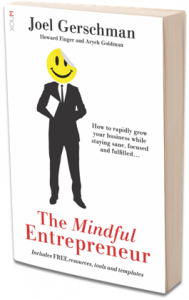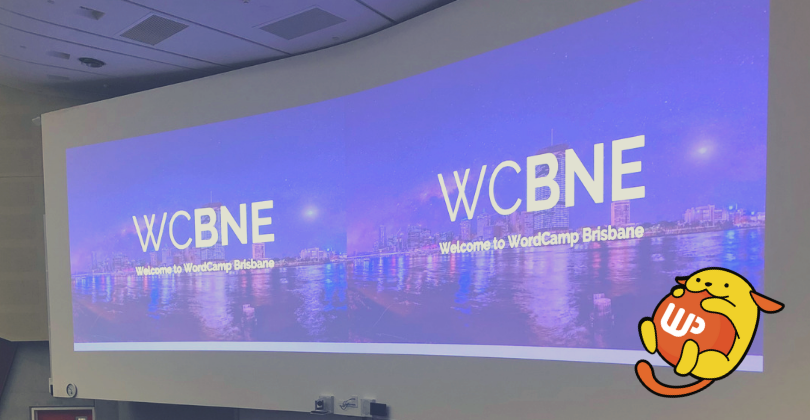Here’s a harsh truth: If your business can’t run without you or if you can’t safely leave your business for a few weeks without all hell breaking loose, you don’t really have a business – you have a job (with overheads!).
So, be honest: Do you own a job or a business?
A business that truly serves your life is a business that gives you the freedom to choose how much or how little you want to be involved. That way, you have time, space and energy for all the other aspects of your life: family, friends, hobbies – or even just to sit back and breathe.
Unfortunately, that kind of ‘choice’ doesn’t just occur on its own. You need to create it. And the way to do that is to intentionally design your business to run smoothly and profitably – with or without you. You design it to run on-time, as promised, every time, and seamlessly like a well-oiled machine. Business sales are continuous even if you’re not there. A business that no longer depends on you.
That kind of business is called a turn-key operation.
It sounds nice in theory, right? But how do you create it?
Franchise prototype
This is one of the brilliant business ideas. The good news is that creating a turn-key operation isn’t difficult. There’s a wildly successful, time-tested model to guide you. In his book, The E-Myth Revisited, Michael Gerber calls it ‘The Franchise Prototype.’ It means that you view your business as the prototype or template for multiple franchises just like it. Of course, it doesn’t mean that you literally need to franchise your business. You simply act as if you will.
You see, research suggests that franchises are significantly more successful than start-up businesses or any other business for sale. And the reason is simple: They’ve created a self-sufficient, lead-generating, client-converting, customer-satisfying machine that anyone can operate.
Whether or not you like McDonald’s burgers, for example, it’s hard to deny that the vast majority of McDonald’s stores are hugely successful. They average $2.3 million in sales (at a healthy profit margin) no matter who runs it or where it’s located. Why? Because they’ve set it up so that it’s virtually impossible to fail. They have tried-and-tested systems for everything: from making burgers through marketing, recruiting and bookkeeping. You simply turn the key – and it runs.
When you begin thinking about your business as a franchise prototype, something incredible is happening. You start shaping a business with such exquisite order and discipline that you could literally ‘hand it over’ to thousands of franchisees with full confidence that they’ll run it consistently and profitably. And when you’re done with your prototype, you have created a turn-key operation that serves your life – regardless of whether you decide to open another location.
Designing systems
All of this still begs the question: How do you create a franchise prototype?
Answer: You’ll need systems… Lots of them. The secret to the success of franchised businesses is that they’re systems-dependent, not people-dependent.
To understand what that means, think about how things work in your business for a moment. Are there defined, documented processes for how to perform each task in your business? Or, do you simply expect your people to have the motivation and skills to do what needs to be done and to get it right each time?
Is the knowledge of how to do what you do captured in a user-friendly operations manual, with a way to track that it’s being followed? Or does the knowledge reside in your head and the heads of your key people?
If you’re like most business owners, you haven’t deliberately designed and documented the key tasks in your business. In other words, you haven’t systemised your business.
Systems are documented, structured, step-by-step processes for performing tasks to achieve desired results. And not having them, is more dangerous than you might think.
Here’s why…
Systems produce results
Think about it. Do all key tasks get done in your business? And do they get done in the most cost-effective, efficient, high-quality way – every time?
If you’re like most business owners, you’re not always achieving the results you desire. But do you know why? Most business owners put it down to their people: “It’s so hard to get good staff.” While having good staff is important, it’s not the main cause of problems in your business. More often than not, it’s a systems problem, not a people problem.
You see, if you’ve never deliberately designed and documented the way key tasks are performed, your systems are not intentional. And unintentional systems produce unpredictable, unintended results. A business made up of random systems is successful only by chance, not by design. When you leave the way you perform tasks up to chance, you also leave the outcomes up to chance.
Franchises function differently. They install structured, designed, tried-and-tested systems for all functions of the business. They look carefully at each task and ask: “What’s the best way to do this to achieve our goals?” Then they test it out and, if it works, they systemise it – so anyone can do it that way every time with similar results. Nothing’s left to chance. Is it any wonder they get results?
Systems free up your time
There’s another reason that systems are so critical: They free up your time.
If you’re like most business owners, your business is largely dependent on you. That means you’re often caught in a cycle of doing much of the work – routine technical tasks, putting out fires, and even administrative chores. And when your time is consumed in that way, there’s no space left to work ON your business, let alone to live your life.
Part of the problem is that business owners are burnt by past experience: The last time they handed something to someone, they stuffed it up. Ever caught yourself saying, “It’s much easier to just do it myself than to explain to someone else”? Sure, you can teach anyone to flip burgers, but your work is more complex, creative, and requiring special experience and skill. Right?
Well, no – not exactly. When you boil down the tasks in your business, you’ll find that the vast majority of tasks are not a brain surgery.
While they might require more skill than flipping burgers, with the right systems in place, anyone with the basic relevant skill set could do it.
Can you see what the outcome would be if you did that? With no systems in place, your business depends on you and a few people who run things for you. If you or they disappear even for a short time, you’re in trouble. But with the right systems in place, the systems effectively run the business, and nearly anyone can run the systems.
It means you can suddenly decide to take a one-month vacation and it will not hurt the business. The key staff can suddenly quit and you can easily replace them. You can choose to work every day in your business, work part-time or pursue other passions altogether. It’s your choice – because your systems run the show.
Design a system
How do you design your systems?
It shouldn’t come as a surprise that there’s a system designing systems. Here are the key components of an effective system:
- A title (indicating the name of the system)
- An objective (explaining the result or outcome the system should produce)
- A diagram (a visual illustration of the system, using boxes and lines)
- The tasks (the key steps of the system, who’s accountable and the timing).
- Expectations (performance standards eg. timing, cost, quality, behaviour)
- Resources (the information, equipment or items needed to operate the system)
- Tracking (the way the system will be measured to ensure it’s working)
There you have it – a system for creating your systems. What are you waiting for? Start systemising your business and you’ll create a turn-key operation that can run without you.
 Comment and WIN
Comment and WIN
Get a chance to gain FREE access to Joel Gerschman’s popular 20-module online business coaching program, The Growth System, priced at USD $39 / mth, for 12 months!
Or, win a copy of his #1 Amazon bestselling book, The Mindful Entrepreneur.
Just answer this question in the comment section below:
“How can WP Hosting help you bring your unique value to your market?”
Winners will be chosen by Joel and the WP Hosting editorial team and contacted at the end of May. Open to Australian residents only. Good luck!

About the author
Joel Gerschman is a leading business coach, bestselling author and educator in the field of business growth, management and leadership. Check out his blog at mindfulentrepreneur.co for more strategies and resources to help you rapidly grow your business while staying sane, focused and fulfilled.




